By Paula Hunter (moderator), executive director of the Mojaloop Foundation
In recent history, open source software has transformed the technology industry in ways that impact people’s lives for the better. Now, open source software, such as Mojaloop, is integral to the design of inclusive and interoperable instant payment system (IIPS) that will give the unbanked in developing countries access to the financial services they need.
An opportunity to discuss Mojaloop’s role in IPS occurred at the Singapore Fintech Festival, which took place in November, 2022. At the Festival, the Mojaloop Foundation convened a panel of experts to discuss “Achieving Universal Financial Inclusion with Interoperable, Instant Payment Systems,” which I moderated.
Panelists included:
- Sopnendu Mohanty, chief fintech officer, Monetary Authority of Singapore (MAS) and a board advisor to the Mojaloop Foundation.
- Andrew McCormack, center head of the Bank for International Settlements (BIS) Innovation Hub in Singapore.
- Steve Haley, director of market development and partnerships, Mojaloop Foundation.
You can learn more from the discussion below or watch the full discussion here (requires free registration).
Unlocking Possibilities with Digital Public Goods
The only way to scale and have a real impact on financial inclusion is with digital public goods. Digital public goods are open source software, such as Mojaloop, that adhere to privacy and other applicable laws and best practices, do no harm by design and help attain the UN’s financial inclusion Sustainable Development Goals (SDGs).
Today, mobile-enabled instant payment systems are available in over 60 countries. However, 1.4 billion people — the majority with a mobile phone — still lack affordable access to digital financial services. In emerging economies, central banks are starting to work to close their financial inclusion gap by evolving their national payment system access models. New paradigms will include banks, SACCOs (savings and credit co-operatives) and non-bank service providers (PSPs). Digital banking and wallets will be delivered from this broad array of providers, depending on local market conditions.
Systems that demonstrate inclusive interoperability offer huge benefits. For example, India created an inclusive interoperable IPS called the Unified Payment Interface (UPI), which led to 70x growth in digital payments in just two years. As a result, many other countries are ready to look at how to connect their financial building blocks to benefit their entire population as well, but many don’t have the resources to build and constantly evolve their own system like UPI.
The Cost Barrier
One of the major barriers to servicing the 1.4 billion unbanked people is that it costs too much to send money to family members or across borders. A bank typically charges $10-$15 for every hundred dollars. Some instant payment services might charge $4-$5 per hundred dollars. The UN’s goal is to reduce these fees to less than 3% of the transaction costs of migrant remittances and eliminate remittance corridors with costs higher than 5% by 2030. In fact, the Mojaloop Foundation believes that ideally no fees, or fees of less than $1, are the ultimate goals of bringing an entire population into the digital economy.
Using an Open Source Solution Reduces Costs
The reason fees are so high in emerging countries is that payment infrastructure is very expensive to build, especially to reach financially excluded populations in rural areas. Many emerging economies are still struggling to build infrastructure for a truly inclusive interoperable payment system that includes all service providers, merchants, and citizens in one system, and it’s much harder for low-income countries to afford to implement an inclusive interoperable system.
Today, almost every major bank in the world is running some form of open source model, typically based on Linux. The benefits of open source software are:
- Lower capital costs upfront. With no software licensing fees, it is easy to spin up a proof of concept and the overall cost of a full-scale deployment does not have the licensing burden.
- Lower maintenance costs, as the community is collectively looking after the ongoing updates to the code base.
- No vendor lock-in. If you choose one vendor to help with your implementation, you can freely shift to other vendors or do work in house without having to purchase the software again.
- Lower cost to acquire additional functionality. Working with the community, new features can be added and upgraded on a constant basis.
This means that open source software has greater implications for the prosperity of developing countries. If you look at any economy, usually the vast majority of the economic activity is driven by millions of citizens, small and medium-sized businesses and merchants. They can be served better by an inclusive IPS, both in a domestic and cross-border context.
Payment schemes adopting Mojaloop technology are in charge of their own implementation and can take advantage of global innovation trends that can lead to digital payments volume growth similar to that of UPI. Developers and technology partners can benefit from Mojaloop’s collaborative technology community and its efforts to deliver standards, extensions, and best practice scheme thinking to their central bank clients.
Plus, Mojaloop’s open source software means a much more efficient and collaborative code base, which opens up solutions for use by low and middle-income countries.
One Loop for All: Mojaloop
As a digital public good, Mojaloop software delivers to its adopters an instant push payments clearing solution and hosts a vibrant community of experienced digital payments consultants and technology companies. We believe that if banks, mobile network operators, SACCOs, fintechs, and microfinance institutions (MFIs) can connect to the same rails, then it can create a vastly improved end-user experience and increase customer adoption and usage.
Imagine a future in which the entire ecosystem benefits. Shopkeepers see their money arriving at the same time as goods leave their shop. A nation’s underbanked population gains affordable access to financial services, increasing the country’s GDP. As a result of designing more efficient, inclusive interoperable, instant push payment rails with Mojaloop, nations can accelerate the growth of a thriving financial ecosystem that delivers valuable and relevant services to all.


